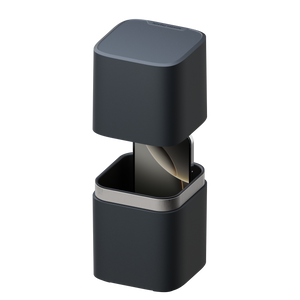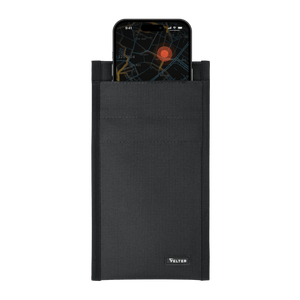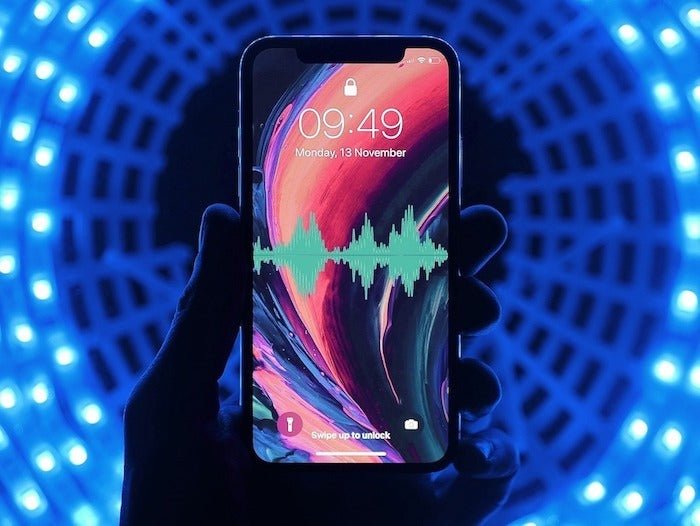Is Your Phone Eavesdropping and Offering Ads?
Once is a coincidence, twice is a chance, and three times is a pattern. This formula accurately describes the situation with "eavesdropping" smartphones. You've probably experienced a situation where you talk about something, and literally the next day, it follows you in the form of targeted ads on the Internet. How is this possible? You didn't enter any search queries on a similar topic, and you only mentioned it out loud a couple of times. One of the suspects is your digital device, which is always with you: your smartphone.
The First High-Profile Case
In 2014, Facebook was the first to face a barrage of accusations of commercial eavesdropping - and not without reason. The largest social network introduced a feature for automatically recognizing music and TV shows during status updates on FB. Users started noticing more and more that the subjects of their private discussions appeared in targeted ad campaigns.

Facebook claimed that the new technology was completely transparent and did not violate user privacy. When activating this feature, while updating the status, the smartphone recorded a short "sample" (~15 sec) and sent it to the company's servers. There, the recording was recognized, and the status displayed the artist and track or the name of the TV show. However, not everyone saw this feature as another convenience of the digital age. To many, it seemed like a demo version of global eavesdropping technology since the Facebook app now had confirmed capabilities to record and recognize audio data. This only intensified the attacks on the corporation, and in 2016, Facebook issued an official denial of the presence of commercial eavesdropping, adding that the app only had access to the microphone if you granted the appropriate permission and if you actively used the aforementioned feature. In addition to the suspicious functionality of the Facebook app, another blow to the privacy of social network users was the scandal involving the transfer of massive amounts of personal information to Cambridge Analytica. Considering that politics was involved this time, the scandal threatened serious consequences for the IT giant.
In 2018, Mark Zuckerberg appeared before the US Senate committee to testify about user privacy violations. Of course, the hearing was dedicated to potential manipulations in the controversial 2016 elections, but the topic of commercial eavesdropping was also briefly mentioned. In response to a direct question from Senator Gary Peters about whether Facebook records data from the microphone to create ad impressions, Mark Zuckerberg answered, "No."
Less than a year after the congressional hearing, the world's most popular social network was once again at the center of a privacy scandal. Again, smartphone microphones and data transfers without users' knowledge were involved. This time, it turned out that voice messages from the Messenger app were being sent to third parties for transcription (converting audio to text). Most likely, Facebook was "training" its own voice recognition system to improve its effectiveness. Given the company's firmly established reputation as "spies," the management didn't deny it and confirmed the fact of transferring speech samples to third parties, only adding that they had suspended such practices for now.
So, what do we have as a result of all these stories related to Facebook? The ability for constant access to users' microphones - check. Speech recognition and other audio data technologies - check. Facts of massive transfer of confidential data to third parties - check. Official confirmation of commercial eavesdropping - none. However, as Senator Gary Peters stated, "I think it's safe to say that Facebook is losing the trust of many Americans." And it's hard to disagree with him.
Eavesdropping Epidemic
But is it just the largest social network that has been involved in scandals with violations of its users' privacy? Of course not - no major IT corporation has managed to avoid accusations of using confidential data for their own interests. The beginning of the "epidemic" of eavesdropping smartphones can be considered the active implementation of voice assistants from Apple and Google.
With an active voice assistant, your phone listens to you 24/7. However, as the developers of these technologies claim, the only thing your smartphone wants to hear from you is a special trigger phrase ("Hey, Siri" or "OK, Google"). But, since there is no full specification of voice assistant technology available to the public, the exact number of triggers and other features of the assistants are still unknown to us.

But we do know something else - information about how IT giants treat audio data obtained through voice assistants. In August 2019, it was revealed that Apple had sent subcontractors speech samples recorded by Siri, the voice assistant. The blow to the reputation was so strong that the Cupertino-based IT giant had to make adjustments to Siri's functionality. Now, audio data collection will only take place with users' consent, and its analysis will be carried out by company employees, without involving third-party firms. However, the speech recognition program itself was not discontinued, which means we cannot rule out the possibility that there are many more interesting stories about privacy, eavesdropping, and corporations in the future.
Investigations by Experts
It's clear that obtaining even slightly objective information about privacy threats from major IT industry players will be quite challenging. Whatever happens to user data, it is likely to be acceptable under the terms of the license agreement we unconsciously accept when we start using a smartphone and its apps. Therefore, we suggest paying attention to independent research and investigations dedicated to mobile tracking and eavesdropping.
In 2018, a large-scale study was conducted by Northeastern University computer scientist David Choffnes (Boston, USA) along with his colleagues. They examined 17,260 apps from Google Play for privacy violations and found that over 9,000 of them had access to the camera and microphone. Moreover, they actively used this access, recording and transmitting various data to third-party servers. Among this data were not only audio and video recordings, but also screenshots or user screen broadcasts! Most likely, this information is used simply to analyze users' behavioral factors, but it is hard to even imagine the massive privacy threats posed by the mere fact of sending such data to third parties.
Another noteworthy investigation was conducted by independent VICE journalist Sam Nichols. Over five days, he deliberately spoke theoretical "keywords" for advertising announcements into his gadget's microphone twice a day, and as a result, such thematic advertising began to follow him afterward.
How to Protect Yourself from Your Phone?
There are more than enough reasons to assume that a smartphone poses a potential threat to your privacy. Therefore, we believe it will be helpful for you to learn simple and effective ways to make communication in the presence of a phone more confidential. If you are a lawyer, journalist, civil servant, work with confidential information, or simply take your personal data seriously, these recommendations are for you.
Disable Microphone Access- For iPhone: Open "Settings," select "Privacy" and then "Microphone." Disable access to the microphone for some or all of the apps in the list.
- For Android: Open settings, select "Apps" and disable access to the microphone for each app in the "App Permissions" (or "Application Permissions") menu.
- Siri: Open "Settings," go to "General," select "Restrictions," and toggle "Siri and Dictation" to the off position.
- Google Assistant: Open the voice assistant app, go to "Settings," then to "Phone," and toggle "Google Assistant" to the inactive position.
A recommendation for the paranoid? Perhaps, but in the photo below, even Mark Zuckerberg himself covered not only his camera but also his microphone.
 Use Shielding Devices
Use Shielding Devices
Shielding devices physically block radio communication and make wireless data transmission, including sending voice recordings, impossible. Previously, such devices were used in specialized industries like digital forensics, but today, shielding accessories are in demand even among ordinary users. The most suitable solutions for everyday use are shielding cases and capsules.
A Faraday case is compact and designed for 1-2 smartphones. It is a Faraday cage that blocks all incoming and outgoing radio signals from the smartphone and physically puts the device offline. It's an ideal solution for personal digital privacy that you can always carry with you.

A Faraday capsule is designed to block communication for several devices at once, accommodating 4-7 smartphones. It is also a compact Faraday cage that passively blocks radio signals from mobile devices. It is used to ensure private conversations, "smartphone-free dinners," digital detox, and protection from radiation. Its stylish and minimalist appearance makes the capsule a beautiful interior decoration. As a result, you can often find capsules in the offices of lawyers, businessmen, and high-ranking officials.

In conclusion, technological progress makes the world increasingly digital, and there's no stopping it. High-speed data transmission and powerful servers push large corporations to collect and analyze Big Data. In pursuit of everything smart, we give more and more personal information to third parties. No, it's not a reason to go underground, lock ourselves in a bunker, and abandon modern life. Technologies drive our world forward, but it's crucial to prioritize: we should control the technologies, not the other way around. And if at certain moments you need to completely shield your personal life from the intrusion of technologies and the corporations behind them, it's hard to find more effective means than Faraday cases and capsules.
This material is based on information from open sources, the links to which you can find in the article text.
27.04.2023

